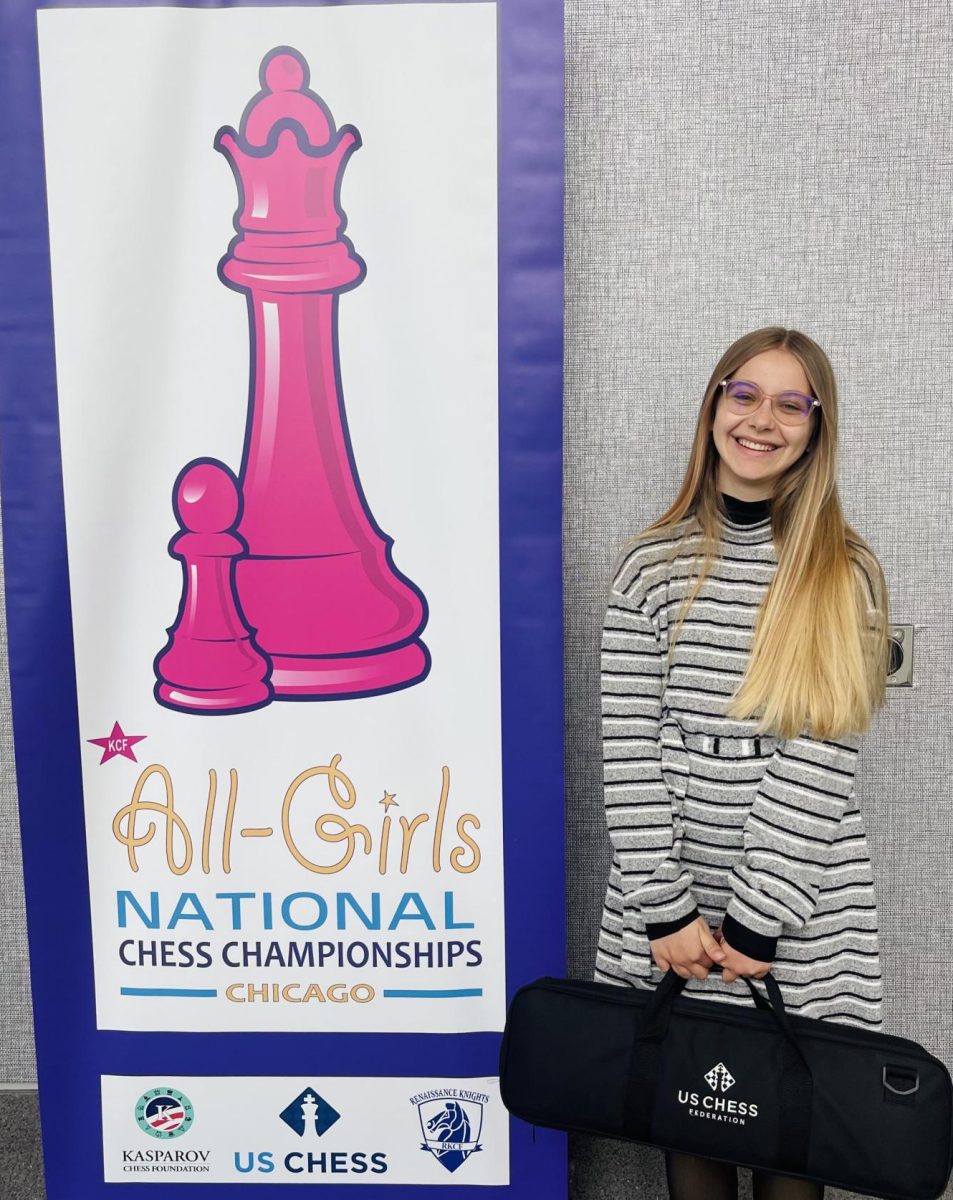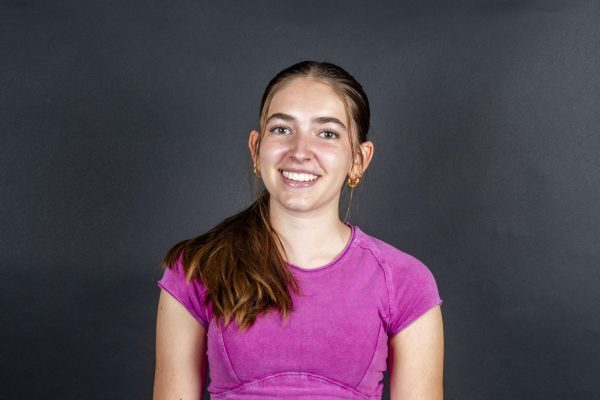Freshman Kaitlyn Otey sits across from her opponent. Though they don’t say anything, their mutual devotion to the game of chess and respect for one another’s strategy forms a connection between them.
“Did I ever think that I would be friends with an 80-year-old Russian guy and also a 12-year-old chess prodigy? No, but we’re great friends,” Otey said. “The good thing about chess is that sportsmanship is such a huge thing that you become great friends with the person you’re playing with. You’re sitting there in silence together for a couple of hours, and you get to know them through their chess. Then you talk about the game afterward, and you get to hang out, and that’s how I’ve made a lot of good friends.”
Otey has met many of her chess friends through the Alondra Park Chess Club, which she joined two years ago to challenge herself. She taught herself how to play chess when she was little, and joined an after-school program when she was seven, but she really “fell in love” with the game when she began competing in tournament chess in March 2023.
“I like being able to sit down for a couple of hours and basically think about nothing else. I love being able to focus on one thing and strategize. I like winning a lot, but I also like learning new things all the time, and that’s what chess does for me,” Otey said.
Otey has competed in tournaments both nearby and in cities such as Chicago and Las Vegas. Otey has placed in a few tournaments, something Matthew Robertson, her coach at the chess club, thinks is no easy feat.
“Chess is incredibly hard, [but] tournament chess is particularly hard. Your opponent is trying to do the same thing you’re trying to do: win the game. It creates a difficult dynamic. You have to always keep an eye on what your opponent’s trying to do while you’re formulating a plan. That’s really difficult for a lot of younger players to understand,” Robertson said. “You can tell a good player is starting to go on the right track when they analyze a little more seriously, when they start taking the game a little more seriously, they’re willing to play some tournaments, to practice and do whatever it takes to get good at it. It takes a lot of devotion.”
Otey dedicates time to improving her game every day by reading chess books, playing online games and going to the Alondra Park Chess Club meetings twice a week. So far, she has competed in 42 events, achieving a rating of 1191, placing her in the 78th percentile of all juniors and the 83rd percentile for all females (uschess.org). Chess ratings go up after beating a player with a higher ranking, and go down after losing. For comparison, Grandmasters, the highest title a chess player can obtain, have a ranking between 2500 and 2700. Otey thanks her parents for these opportunities and for their support.
“My parents are the biggest supporters of my chess,” Otey said. “I’m very grateful my parents make the sacrifice to come stay with me while I’m playing all this chess, going on trips and supporting me emotionally. If I’m having a rough couple of rounds, they’re there to tell me to pick myself up and to keep going. [They get] me in that winning mindset, because a lot of times I struggle with confidence in chess, and they tell me that, yes, I can win, I just need to go for it.”
When Otey first started competing, she struggled with confidence because many of the youth players at her level were much younger than her, but as she improved, she became more self-assured and willing to make riskier moves.
“[Playing chess has taught me] a lot about keeping my confidence and my ego in check, believing in myself and making sure I’m thinking things through rationally before I make any decisions. You really do have to calculate every line when you’re thinking of making a sacrifice,” Otey said. “It’s helping me be more accepting of other people and try to think about other people’s hidden skills. It’s taught me that there’s nothing bad enough that you really can’t recover from it. No matter how bad things get, you can always try your best to make them better.”




